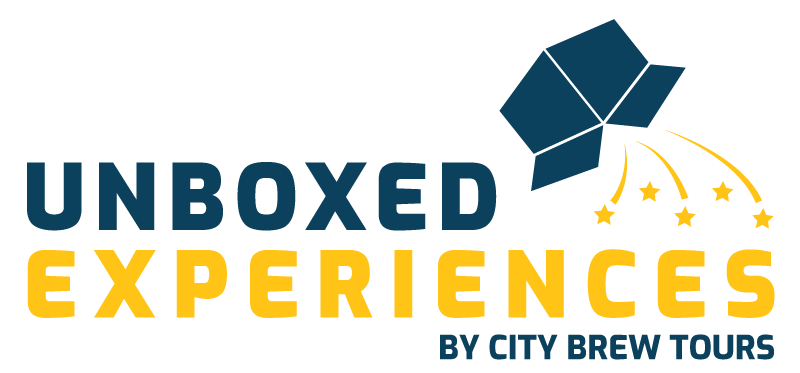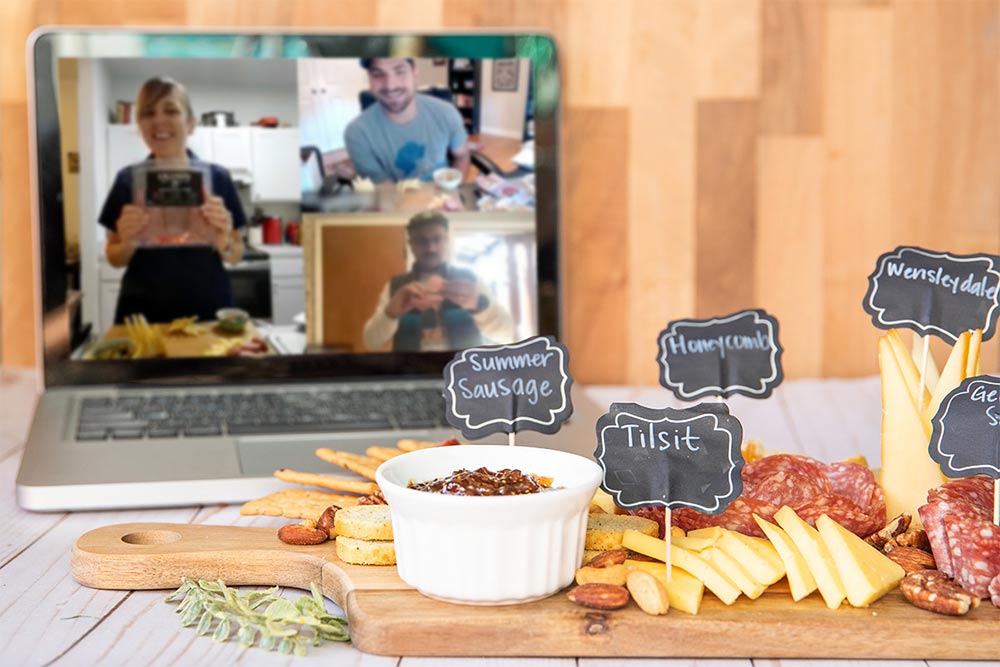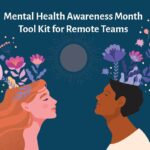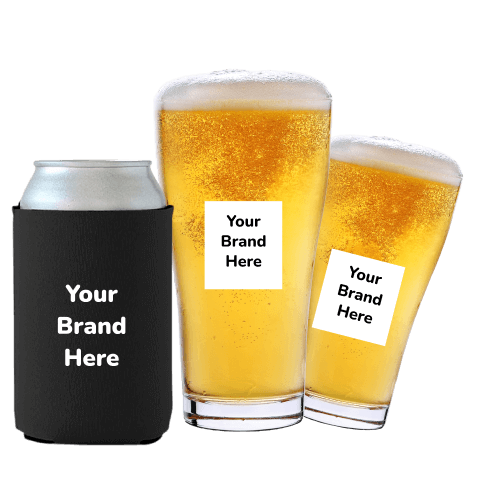Here is Your Guide to Ideas for Mental Health Awareness Month 2025
Observed every year in May, Mental Health Awareness Month is a crucial opportunity to prioritize mental wellness in the workplace. With remote work becoming more common, it’s essential to provide virtual resources and support for remote teams.
In this blog, we’ve compiled 20 ideas for Mental Health Awareness Month activities and tools for remote employees, including mental health events, workshop ideas, mental health awareness ideas and mental health games and activities for adults.
Table of Contents
Activities to Improve Mental Health
1. Guided Meditation
Mindfulness meditation is a practice that involves paying attention to the present moment, without judgment or distraction. It is a form of meditation that is often used to reduce stress, improve focus and concentration, and enhance overall well-being.
There are a variety of mindfulness meditation techniques to choose from, including guided meditations, body scans, and walking meditations. These techniques can be practiced individually or in a group setting.
Pro-tip: Interested in booking an event with guided meditation sessions? The Tea & Mindfulness Experience from Unboxed Experiences features meditation and mindfulness exercises led by a professional live event host. This virtual event is perfect for group mental wellness activities for remote and hybrid teams.
2. Gratitude Journaling
Gratitude journaling is a simple practice that can improve mental well-being. Encourage employees to write down three things they’re thankful for each day. This can help shift their focus towards positivity and increase feelings of gratitude.
3. Outdoor Mental Wellness Activities
Being outdoors in nature has been shown to reduce stress and anxiety, and promote feelings of relaxation and calm.
One popular outdoor activity is hiking. Hiking can be a great way to explore nature and get some exercise at the same time. It is also a way to disconnect from technology and the stresses of everyday life, and reconnect with nature and oneself.
Another popular outdoor activity is gardening. Gardening is a great way to get some fresh air, exercise, and sunshine. It can also be a therapeutic activity, as it provides a sense of accomplishment and connection to the earth.
Outdoor activities can also be social activities, such as team sports or group hikes. Participating in outdoor activities with others can promote social connection and support. That can be beneficial for mental health and well-being.

4. Mental Health Workshops
Mental health workshops are group sessions designed to educate and promote awareness about mental health issues. These workshops can cover a range of topics, from understanding common mental health disorders to stress management techniques and mindfulness practices.
Mental health workshops can be particularly effective in the workplace, as they can help reduce stigma around mental health and encourage open communication about mental health concerns. They can also help employees develop skills and strategies to better manage stress, improve resilience, and enhance overall well-being.
There are a variety of mental health workshop ideas to choose from, depending on your organization’s needs and goals. Some workshops may be focused on specific mental health disorders, such as depression or anxiety, while others may focus on more general topics such as stress reduction or building resilience.
Workshops can be facilitated by mental health professionals or by employees with relevant training or expertise. They can be conducted in person or virtually, and can range in length from a single session to a multi-day event.
One of the benefits of mental health workshops is that they can help build a sense of community and support within the workplace. By bringing employees together to learn and share experiences, workshops can foster a sense of connection and reduce feelings of isolation or alienation.
5. Music Therapy
Music therapy is a form of therapy that uses music to address a variety of mental health issues. It can be particularly effective for individuals with depression, anxiety, and other mental health conditions.
Music therapy can take many forms, including listening to music, singing, playing instruments, and improvising music. The therapist may use different types of music depending on the individual’s needs and preferences, and the therapy can be tailored to each person’s unique needs and goals.
One of the benefits of music therapy is that it can help individuals express themselves in ways that may be difficult with words alone. For example, someone who is struggling with depression may have difficulty articulating their emotions, but may find it easier to express themselves through music.
Research has shown that music therapy can be effective in reducing symptoms of depression and anxiety, as well as improving overall well-being. It can also be a valuable tool for improving social skills and reducing feelings of isolation, particularly for individuals who may have difficulty communicating in other ways.

6. Walking Meetings
Walking meetings are a great way to get some exercise and improve mental health while still being productive. Suggest employees take their meetings outside and walk while discussing work matters.
Fun Activities to Improve Mental Health
7. Virtual team enrichment activities
Whether you book a virtual team booking activity or a virtual event just for the fun of it, team enrichment activities can help relieve stress among your remote workers. Here are a few quick ideas for Mental Health Awareness Month:
Beer & Cheese Pairing Experience
This virtual event comes with great craft beer to pair with gourmet cheeses. Each event is professionally led by a live event host, so you and your team can sit back and enjoy each others’ company during your event.
If you’re looking for truly memorable mental wellness activities, a virtual wine tasting is a great event for your remote team. Everyone on your team will receive a box of premium wines, and each event includes an expert wine tasting guide who will lead your group on a tasting event that will have everyone feeling like sommeliers at the end. Try the Wine & Cheese Pairing Experience, which comes with gourmet cheeses and other elevated finger fare.
One of Unboxed Experiences’ most popular events is the Ice Cream Float Experience, and it’s no wonder why. This event delivers everything that your guests need to make their own ice cream AND ice cream floats. The Ice Cream Float Experience is a lively and energetic event, making it a particularly effective mental wellness activity.
Learn more about team enrichment activities and book your event here.
8. Virtual Cooking Classes
Virtual cooking classes can be a great way to promote mental health and well-being among employees. Cooking is a creative and enjoyable activity that can provide a sense of accomplishment and satisfaction, and it can also be a way to practice mindfulness and be present in the moment.
Virtual cooking classes offer the added benefit of being accessible to remote employees and those working from home. They can also be tailored to specific dietary needs or preferences, such as vegan or gluten-free cooking. Further, because of the nature of cooking classes, they are one of the best group ideas for mental health improvement.
Participating in virtual cooking classes can also promote social connection and support, which can be beneficial for mental health and well-being. Employees can share their creations with each other and discuss their experiences and challenges, creating a sense of community and connection even in a virtual setting.
Pro-tip: Learn more about virtual cooking classes and how they can help your remote team by reading our blog on Virtual Cooking Classes for Team Building.
9. Self-Care Bingo
The concept of Self-Care Bingo may sound complicated, but it really is quite simple: create a bingo card with different mental health activities listed in each square. Employees can then mark off each square as they complete the corresponding activity. The mental wellness activities listed on the bingo card can vary widely, and might include things like:
- Take a 10-minute break outside
- Meditate for 5 minutes
- Write down three things you are grateful for
- Listen to your favorite song
- Do a stretching routine
- Drink 8 glasses of water throughout the day
- Practice deep breathing for 3 minutes
- Take a relaxing bath or shower
The goal is for employees to complete a row of activities, either horizontally, vertically, or diagonally, and then submit their completed bingo card for a prize or reward.
Self-Care Bingo is a simple yet effective way to encourage employees to prioritize their mental health and well-being. It is also a way to promote healthy habits and behaviors in a fun and engaging way, and can help employees develop a regular self-care practice.
Activities for Mental Health Awareness Month at Work
10. Mental Health Screenings
Mental health screenings are a proactive and preventative approach to promoting mental health and well-being among employees. They involve simple assessments or questionnaires designed to identify potential mental health concerns or issues.
Mental health screenings can be conducted online or in-person, and can cover a wide range of mental health concerns, such as depression, anxiety, stress, substance abuse, and more. The assessments are typically confidential, and employees can choose to share their results with their healthcare providers or counselors if desired.
Mental health screenings can be particularly valuable for identifying potential mental health concerns in their early stages, before they become more severe or difficult to manage. They can also help to reduce the stigma around mental health issues and encourage employees to seek help if they need it.
Offering mental health screenings as part of Mental Health Awareness Month can be a proactive way to promote mental health and well-being among employees. It can also serve as a reminder to employees to prioritize their mental health and seek help if needed.
11. Mental Health Resources
For Mental Health Awareness Month, you can provide a list of mental health resources that are available to employees, such as employee assistance programs (EAPs), online counseling services, and mental health hotlines. You can also share resources such as mental health apps, websites, and educational materials that can help employees better understand mental health and how to maintain their mental well-being.
It’s important to ensure that the mental health resources you provide are evidence-based, accurate, and relevant to the needs of your employees. You can consult with mental health professionals or organizations to ensure that the resources you provide are up-to-date and effective.
By providing mental health resources, you can help employees feel more supported and empowered to take control of their mental health. This can ultimately lead to a happier and healthier workforce.
12. Mental Health Days
Mental health days are days off from work that employees can take to prioritize their mental health and well-being. These days are similar to sick days or vacation days but are specifically designed to allow employees to take time off when they are feeling overwhelmed, stressed, or struggling with mental health issues.
By taking time off to rest and recharge, employees can reduce their stress levels, improve their mental health, and return to work feeling refreshed and more productive. Mental health days can be particularly helpful for employees who are experiencing burnout or who are dealing with mental health challenges such as anxiety or depression.
13. Employee-led Mental Health Groups
Employee-led mental health groups can take many different forms, depending on the needs and interests of your employees. For example, your group might meet regularly to discuss mental health topics, share resources and strategies for managing stress and anxiety, or plan mental health awareness campaigns and events.
To establish an employee-led mental health group in your workplace, consider sending out a survey to gauge interest and gather ideas for topics and activities. You can then recruit interested employees to help organize and lead the group, and work together to establish goals and objectives for the group.
14. Mental Health Training for Managers
Mental health training for managers is an important aspect of promoting mental health in the workplace. Managers play a key role in supporting employees’ mental health and well-being, and providing them with the knowledge and tools to do so effectively can have a significant impact on the overall health of the organization.
Mental health training for managers can cover a range of topics, including how to recognize the signs of mental health conditions, how to approach conversations about mental health with employees, and how to provide support and accommodations when needed. The training can also include information on available resources, such as employee assistance programs or mental health professionals.
In addition to providing training, it’s important to create a culture of openness and support around mental health. Managers should be encouraged to check in regularly with employees, and to create an environment where employees feel comfortable sharing their experiences and seeking help when needed.
More Activities to Improve Mental Health
15. Mental Health Check-Ins
Providing regular check-ins and opportunities for employees to share their thoughts and feelings can be an important way to support mental health. Consider implementing weekly one-on-one meetings or virtual coffee breaks for team members to connect with each other and discuss their experiences.
16. Mindful Breathing Exercises
Mindful breathing exercises can help reduce stress and anxiety, and improve focus and productivity. You can share simple techniques with your employees, such as counting breaths or focusing on the sensations of breathing.

17. Creative Outlets
Establishing creative outlets for remote workers can be a great way to reduce stress and improve mental health. Consider offering a virtual art class or writing workshop, or encourage employees to take breaks to doodle or write in a journal.
18. Mental Health First Aid Training
Consider offering mental health first aid training to managers and employees. This can help them better understand mental health conditions and provide support to those who may be struggling.
19. Flexible Work Arrangements
Providing flexible work arrangements, such as flexible hours or remote work options, can help reduce stress and improve work-life balance. Consider implementing policies that allow employees to adjust their schedules as needed to better support their mental health.
20. Virtual Yoga Classes
Offer virtual yoga classes to employees, which can help them reduce stress and improve their mood. Many yoga studios now offer online classes, and there are also several free resources available online.
Conclusion
Mental health awareness is an important issue in any workplace, and it’s essential that employers take steps to support their employees’ mental health and wellness. This is especially important in today’s remote and virtual work environments, where employees may face unique challenges related to isolation, burnout, and work-life balance.
In this blog, we’ve outlined 20 ideas for Mental Health Awareness Month, including mental health training for managers, mindfulness meditation, virtual cooking classes, mental health screenings, and more. By implementing these ideas, you can help to create a workplace culture that prioritizes mental health and wellness, and supports employees in their efforts to manage stress, anxiety, and other mental health challenges.
Remember, promoting mental health awareness and support isn’t just the right thing to do – it’s also good for business. By investing in your employees’ mental health and wellness, you can improve job satisfaction, increase productivity, and create a more positive work environment overall.
We hope that this blog has provided you with valuable ideas and strategies for promoting mental health awareness and support in your workplace. With the right tools and resources, you can help to create a workplace culture that supports and empowers your employees to be their best selves, both at work and beyond.
For more tips and ideas for Mental Health Awareness Month 2024, please visit our Employee Wellness Program Tool Kit and read our blog about Virtual Employee Wellness Programs That Actually Work.
Frequently Asked Questions
Q: What is Mental Health Awareness Month?
A: Mental Health Awareness Month is an annual observance in May that aims to raise awareness about mental health and promote the importance of mental health care.
Q: Why is mental health important in the workplace?
A: Mental health is important in the workplace because it can have a significant impact on employee well-being, productivity, and job satisfaction. Supporting employee mental health can help create a positive work environment and lead to better business outcomes.
Q: What are some signs that an employee may be struggling with their mental health?
A: Some signs that an employee may be struggling with their mental health include changes in mood or behavior, decreased productivity or engagement, increased absenteeism or presenteeism, and social withdrawal. It’s important to approach these situations with empathy and sensitivity, and to offer support and resources as appropriate.
Q: How can I start a conversation about mental health with my team?
A: Starting a conversation about mental health can be challenging, but it’s important to create a supportive and open environment. Consider sharing resources and information about mental health, and asking team members to share their own experiences and thoughts. Make sure to listen actively and avoid judgment or criticism.















